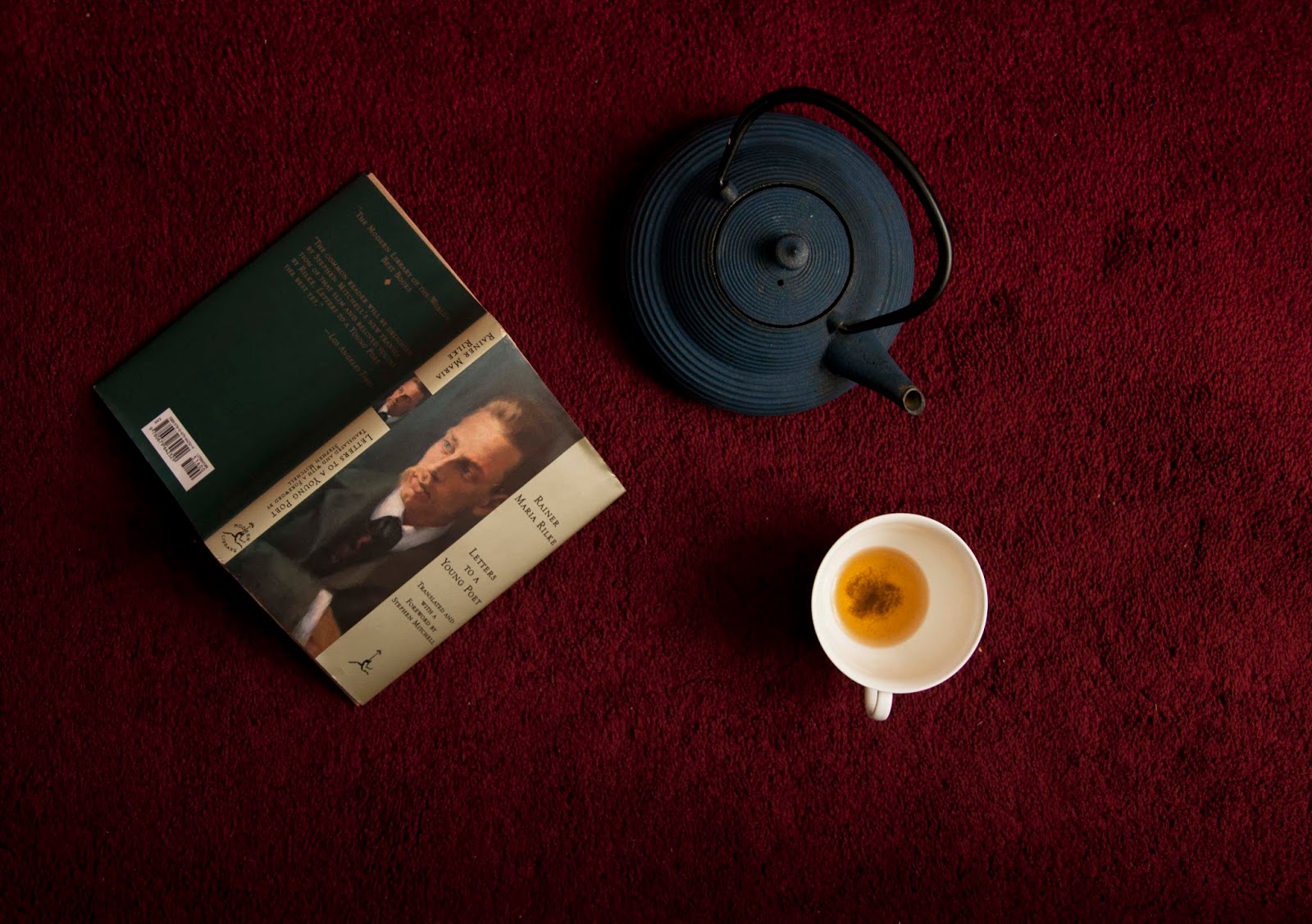It seems to me that almost all our sadnesses are moments of tension, which we feel as paralysis because we no longer hear our astonished emotions living. Because we are alone with the unfamiliar presence that has entered us; because everything we trust and are used to is for a moment taken away from us; because we stand in the midst of a transition where we cannot remain standing
(Rainer Maria Rilke. Letters to a Young Poet. Trans. Stephen Mitchell. NY: Modern Library, 2001. 83-84).
All of Rilke’s letters in his Letters to a Young Poet are deeply beautiful. And though my current favorite is the seventh chapter, I find the eight chapter no less profound. It is as if the chapter attempts a summary of all that has been said. There are so many passages in this letter worth considering and I will be using some of them to support the chosen quote above––which seems the thesis of the letter. For this commentary, my interest is merely to explore a little further Rilke’s concept of sadness as “stand[ing] in the midst of a transition where we cannot remain standing.” What is sadness and what does Rilke’s definition draw out?
Who has never been sad? And though there are some who would rather be sad, many of us would rather be happy. And yet it is not easy to define sadness. One understands sadness as best as one’s experience allows. Thus the sadder one has been, the deeper one understands or recognizes the feeling and vice versa. According to the American Heritage Dictionary, sadness is “sorrowful; unhappy” or “causing sorrow or gloom.” But these say very little, just as words generally do say very little about emotions. For instance, we are still trying to explain to one another our understanding and experiences of love.
What the dictionary offers as meaning for sadness appears to be merely synonyms for the word. But what Rilke provides, confuses meaning yet explains why the dictionary can only go so far as give synonyms. One must know sadness to be able to say anything on sadness. And again, who has never been sad? But sadness is felt differently––diversity. There are those who know it on daily basis as if it were background music and those who spend their days nailing planks to any entrance it tries to slip through. For Rilke, “The only sadnesses that are dangerous and unhealthy are the ones that we carry around in public in order to drown them out with the noise; like diseases that are treated superficially and foolishly, they just withdraw and after a short interval break out again all the more terribly; and gather inside us and are life, are life that is unlived, rejected, lost, life that we can die of” (82). It brings to mind a line from a poem of Rumi’s, “Inner joy and grief are different from artful appearance.” In which case one may compare the dictionary’s definition of sadness literally to an “artful appearance,” and Rilke’s definition as his efforts to invite one to look at the portrait he has managed to attain of sadness.
But what does it mean to “stand in the midst of a transition where we cannot remain standing?” As a state of transition, is it then a point between what is past, and what is to come? Is this then a timeless state seeing as it is the interconnection of all times? In which case, one may ask, is the present a sad state seeing as it is neither past nor future? If so is it sad only when its focus is not on its current but lured by desires to merge with familiarities of the past or anxieties about the obscurity of the future? What happens when one seeks consciousness of the now, does it come to one as sad because one is attached to other instances of time? It is arguably not the transitioning juncture that paralyzes but the overwhelming sudden awareness of its infinity that causes “tension.”
Rilke explains further through a metaphor, “A man taken out of his room and, almost without preparation or transition, placed on the heights of a great mountain range, would feel something like that: an unequalled insecurity, an abandonment to the nameless, would almost annihilate him. He would feel he was falling or think he was being catapulted out into space or exploded into a thousand pieces: what a colossal lie his brain would have to invent in order to catch up with and explain the situation of his senses” (87-8). Thus “the colossal lie” termed sadness is but a feeling of doubt and fear in a state of sublimity. It is therefore not merely the now but what one encounters in the now. Rilke explains further, “People…will also gradually come to realize that what we call fate does not come into us from the outside, but emerges from us. It is only because so many people have not absorbed and transformed their fates while they were living in them that they have not realized what was emerging from them…The future stands still, dear Mr. Kappus, but we move in infinite space” (85-86).
At the end of this letter, Rilke writes “Don’t think that the person who is trying to comfort you now lives untroubled among simple and quiet words that sometimes give you pleasure. His life has much trouble and sadness, and remains far behind yours. If it were otherwise, he would never have been able to find those words”(97). Which brings one to the pivot of things, experience. So perhaps the question ought not be, who has never been sad? But what do you do with your sadness? In other words, how do you treat your fate––that which is your present?
—
J. A. Odartey



